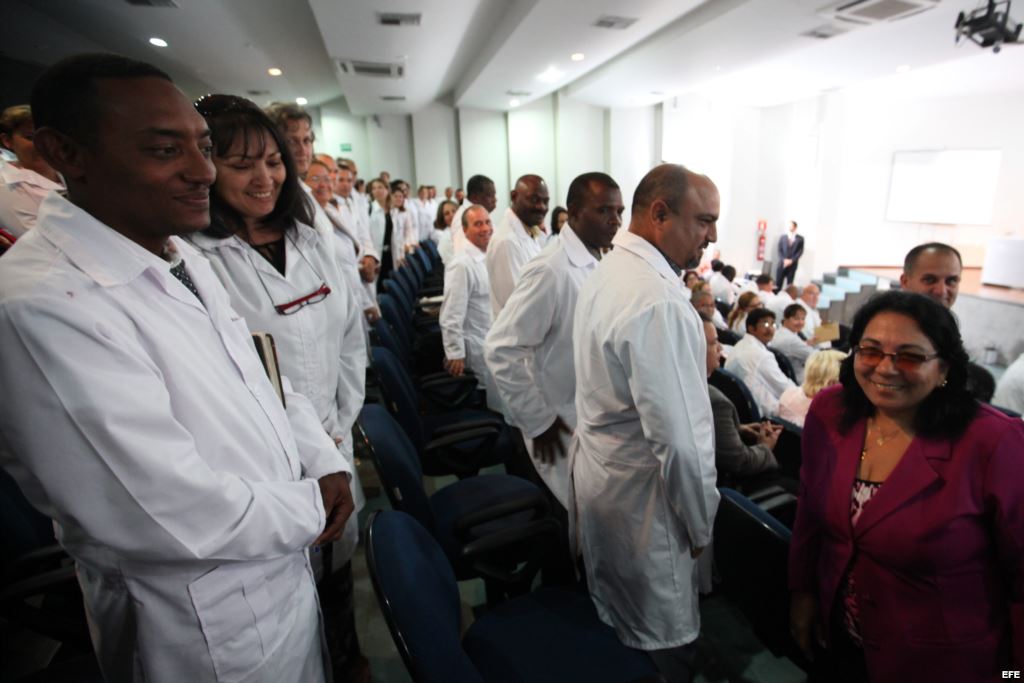
Juan Juan Almeida, February 1, 2016, Martí Noticias — The Ministry of Public Health claims it is giving an award but it is creating a total hornet’s nest. On tour throughout the country, Dr. Marcia Cobas, Vice Minister of Health and a member of the Central Committee of the Party, announces in every hospital she visits that she’s going to distribute computer laptops and 200 automobiles among the Cuban doctors.
I wonder how you divide 200 Chinese vehicles among all the Cuban professionals if — according to official figures — there is one nurse in Cuba for every 126 inhabitants, a doctor for every 159 residents, a dentist for every 1,066 neighbors and a uterine endoscopist for every 200 inhabitants.
The health authorities, inherent in a dictatorship with a sinister administration, aren’t recognizing the work of the doctors. They are awarding disloyalty and indifference to the common problems of a very sensitive profession.
A renowned professor, whose name I can’t mention except to say that he’s an active member of the Cuban Society of Psychiatry and a specialist in the study of human behavior, assures me that a governmental decision of this type is a dangerous exercise in control that causes spontaneous hatred and manifests in unusual racist insults, sexist judgments, classist complaints and accusations among the physicians who, in addition to being competitive, are totally abusive. The doctors are hopping mad, washing their dirty linen in public.
The measure, as is logical, far from lessening the discontent of the fraternity of doctors, increases the mistrust, intensifies the repressed hatred and generates a worrisome atmosphere of tension among the doctors who get ready to fight, wielding usury as a weapon, to be the winners of the prize.
“No one can conceive that using a stimulus of this type, it’s obvious, as an instrument of confrontation among colleagues, creates solidarity. We Cubans know very well, since we have suffered it for more than 56 years, that similar practices never gave positive results,” says the physician.
The plan includes, in addition, Cuba’s State phone company, ETECSA, giving landline telephones to all doctors and dentists. Now, across the length and breadth of the country, hospital directors began to complete the pertinent lists in order to execute the measure, but they are facing the growing discontent that is apparent among the rest of the health personnel: the technicians and nurses who have all been ignored and are in very bad moods.
“Although it seems exaggerated, we are up against a committed attack on the country’s economy which, in some way, also affects the national population in terms of health. Because, although we are making Cuban doctors compete, it also discourages creating a framework of negotiation that is very susceptible to blackmail,” concludes my friend. “You only have to read Pavlov and B.F. Skinner, well-known students of behavior, to understand that with this type of award there are negative effects that lower the moral positivity of the prize and the effect on work of not awarding a prize.”
Translated by Regina Anavy
